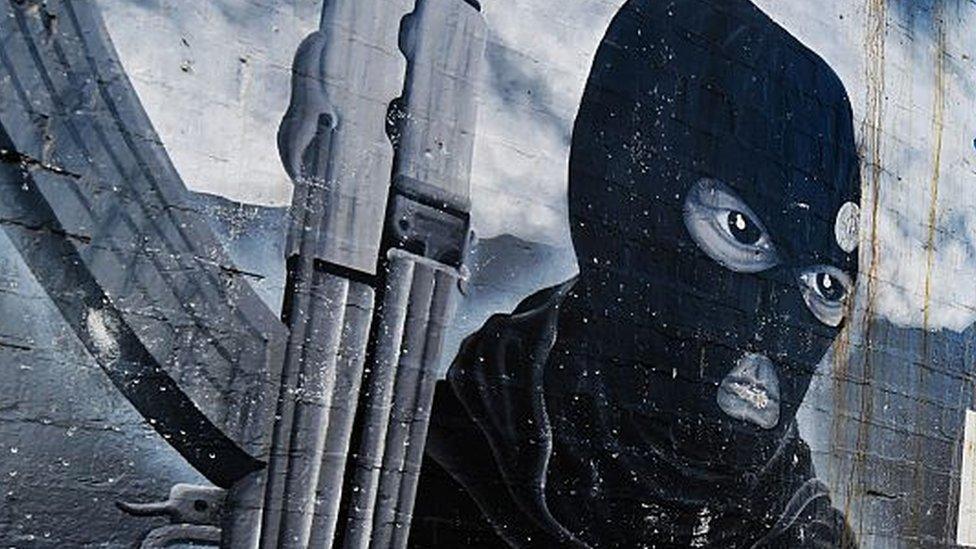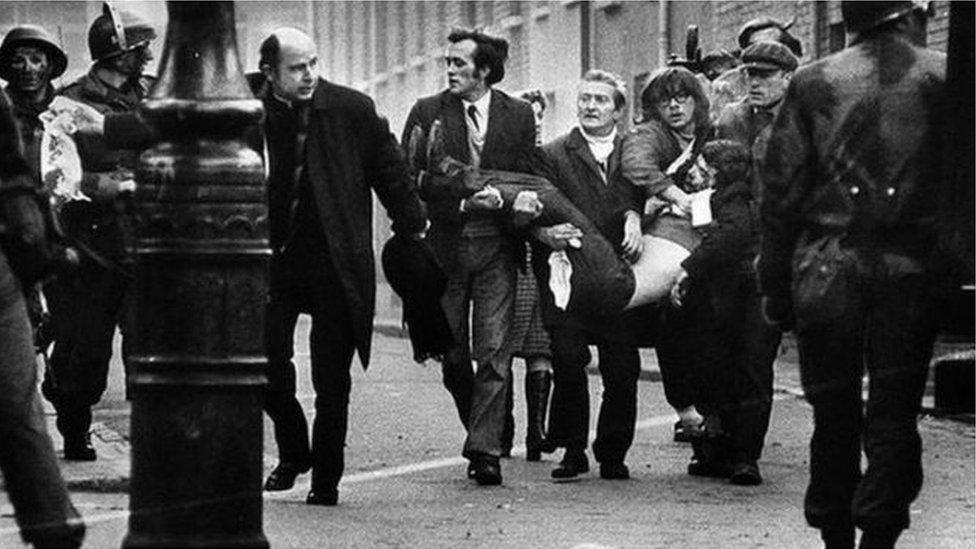Once Upon a Time: BBC series takes personal look at the Troubles
- Published
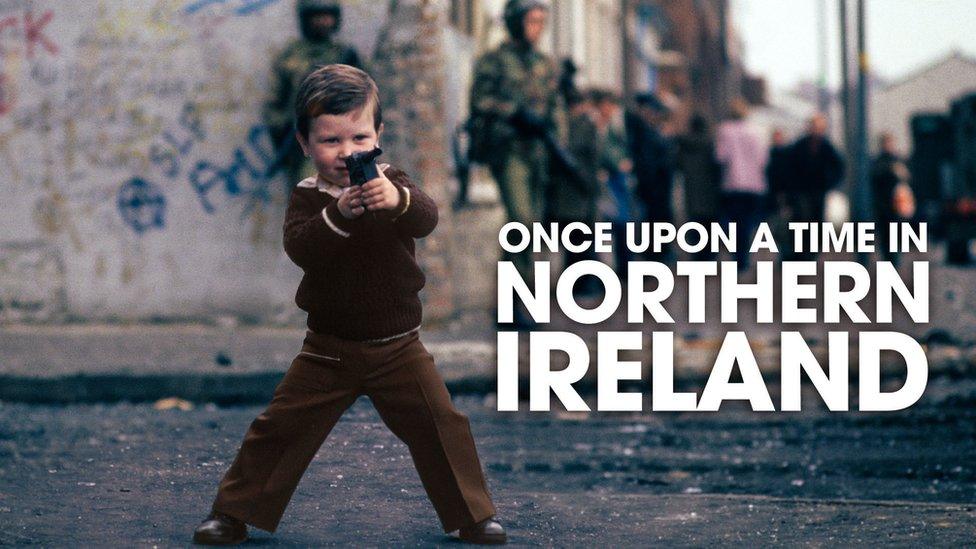
Once Upon a Time in Northern Ireland airs on BBC Two on Monday
"The problem with history, all histories are usually sanitised one way or another, because the teller wants their history to be told so that the other guy's history will be diminished... I say let it all be told. Let everybody have their say and let future historians make up their minds."
Those are the words of Belfast man Ricky, who is one of a number of contributors to a new BBC Northern Ireland series on the Troubles.
Beginning on Monday on BBC Two and iPlayer, Once Upon a Time in Northern Ireland is a new five-part documentary "sharing intimate stories from all sides of the conflict".
The programme features contributors from across the religious and political spectrum whose lives were changed forever by the conflict - from the son whose mother was kidnapped by the IRA, to a man from a loyalist estate whose family secret challenged some of his beliefs.
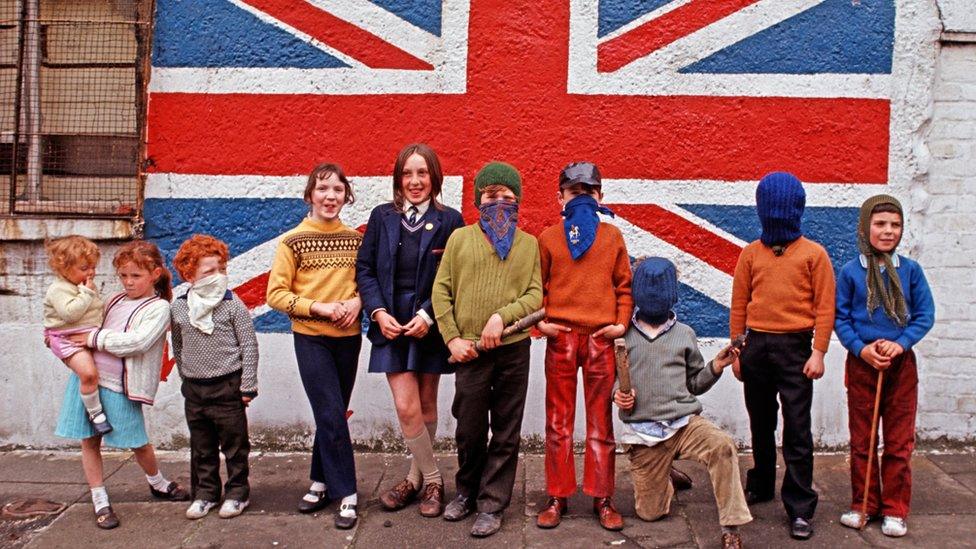
Children from a Loyalist area in Belfast in front of a Union Jack flag mural in 1971
The series runs chronologically from the beginning of The Troubles in the late 1960s to the Good Friday Agreement in 1998.
Episode one begins as tensions between Catholic and Protestant communities build and episode five ends with reflections on the Good Friday Agreement by some of those whose lives were most closely impacted by it.
For Ricky and his republican family, old wounds were reopened in the 1960s by the security and government response to the civil rights movement and the Provisional IRA came to the fore.

Ricky is a former republican prisoner and blanket man
In rural Northern Ireland, June's young husband Johnnie Proctor decided to join the police, a move that had devastating consequences.
Tactical mistakes by the British Army had the effect of adding to the chaos.
Soldiers like 19-year-old Tom, who had arrived with little understanding of the unfolding conflict, quickly found themselves caught up in violent clashes.
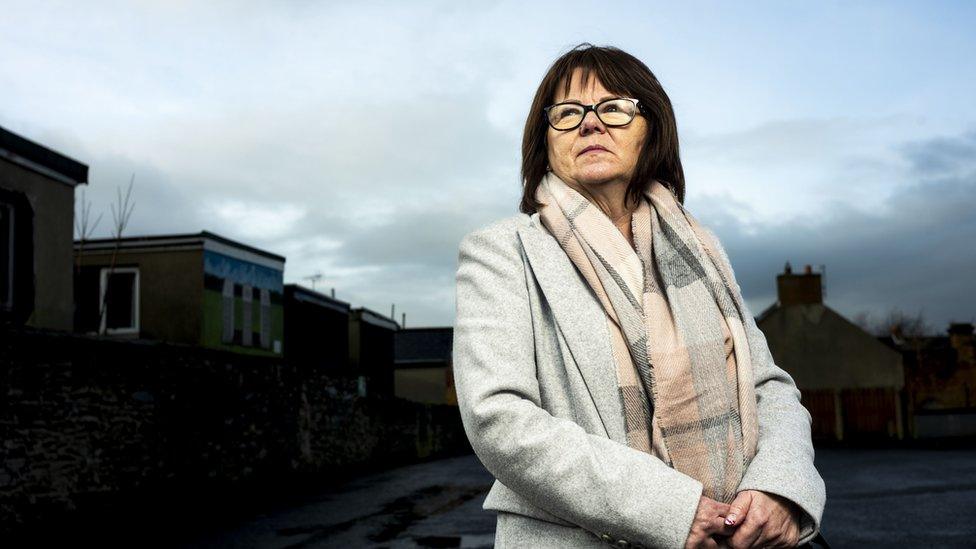
June, wife of policeman Johnnie Proctor who was murdered by the IRA in 1981
For Fiona and her family, who lived in the midst of a community devastated by the effects of Bloody Sunday, what happened then set in motion a chain of events that would end in trauma.
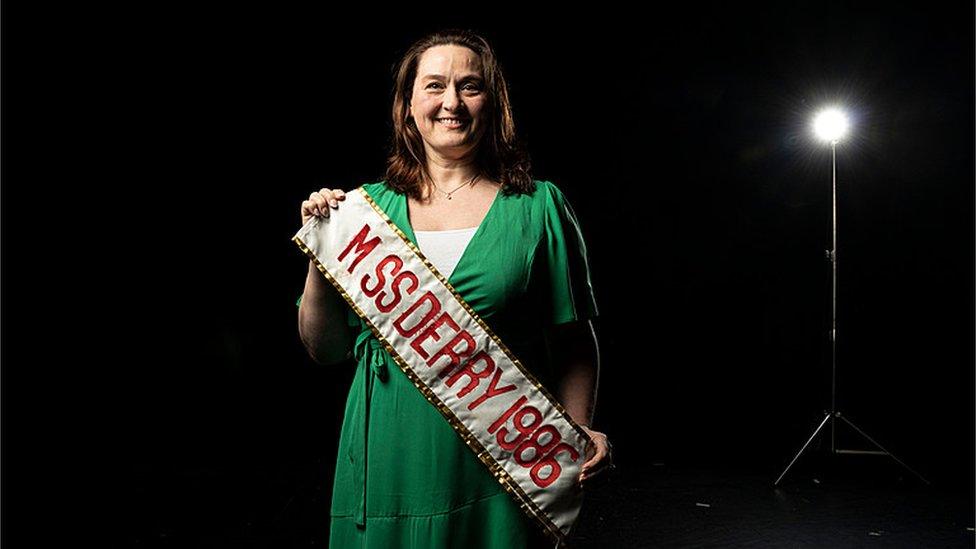
The Troubles had a devastating impact on Fiona, whose brother Jim was killed by a soldier
Later episodes question whether paramilitaries "lie awake at night" worrying about the impact of their violence and coercive control.
Award-winning series director James Bluemel, who previously worked on the BBC series Once Upon a Time in Iraq, told BBC News: "As an adult, I might have understood the broad politics behind the events, but after my conversations with Iraqis, I realised I had no idea how anyone in Northern Ireland really felt about what it was like living through that.
"I had been exposed to the politics of the conflict, but I had not heard the human stories from those that were there."

Morning after a night of riots in Belfast in 1976
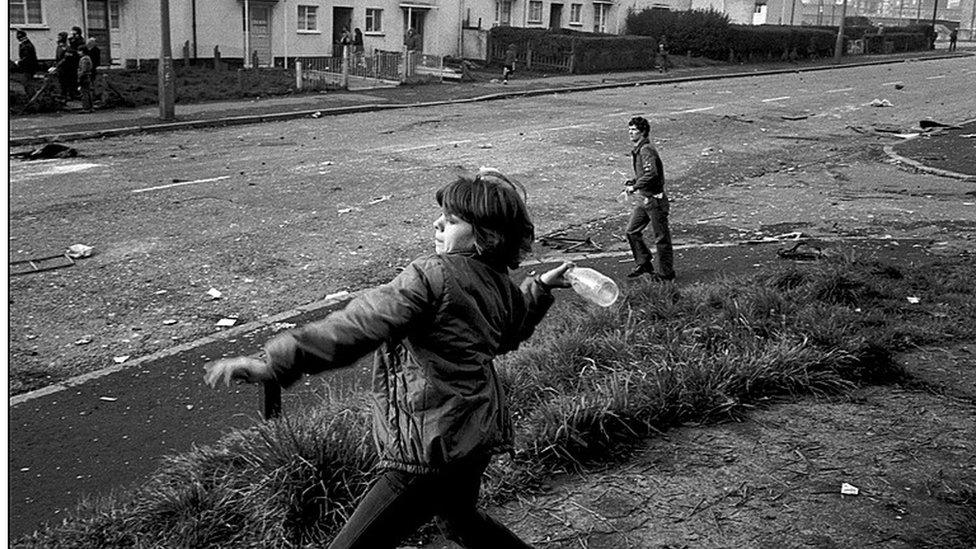
Ann Marie, aged 10, throwing bottles at British troops in 1981
After lockdown restrictions lifted, the English director found himself in Belfast, meeting the first contributors who would feature in the documentary.
Although Mr Bluemel had concerns about asking people to essentially relive traumatic events, he added: "Some expressed that now, with the passing of time, they are able to speak more openly and freely than before.
"While history is made up of big stories, it is understood best when we can hear the small, personal details."
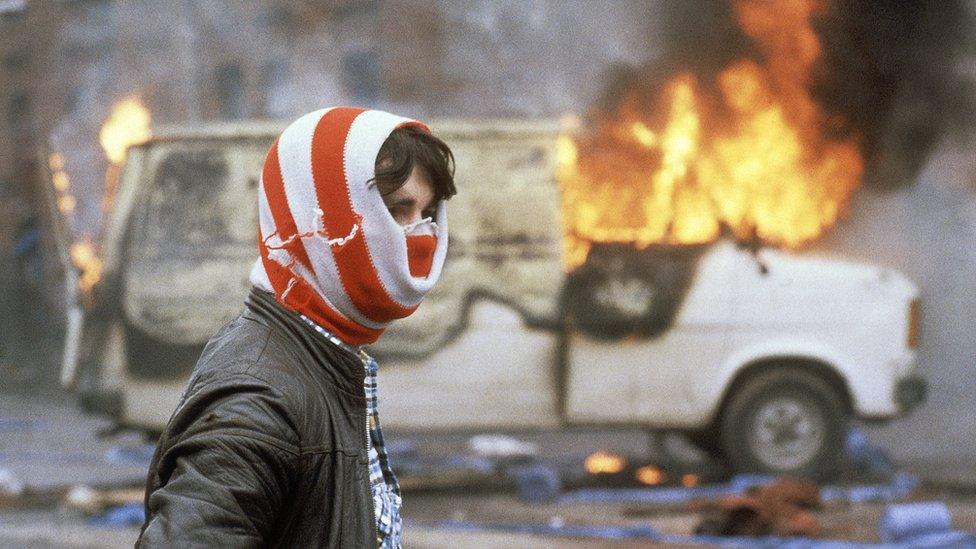
Once Upon A Time In Northern Ireland airs on BBC Two at 21:00 BST on Monday
In the series, Michael McConville remembers the day his mother, Jean, was taken away and murdered by the IRA.
"The trauma of this event on Michael is evident, not just in the way he talks but also the way he holds himself, his body displays the pain he feels," Mr Bluemel said.
"However, when Michael's 26-year-old daughter Bronagh sat in the chair to talk about how that event has impacted her life, Jean McConville stopped being a woman confined to the past, only seen staring out of the one grainy black and white photograph.
"Through her granddaughter, Jean transcended out of the confines of an historical account into the here and now. It was a profound and powerful moment for me to see her through Bronagh's eyes."

SEE THE SERIES: 'It Wasn't Like a Movie Anymore'

Related topics
- Published14 August 2023
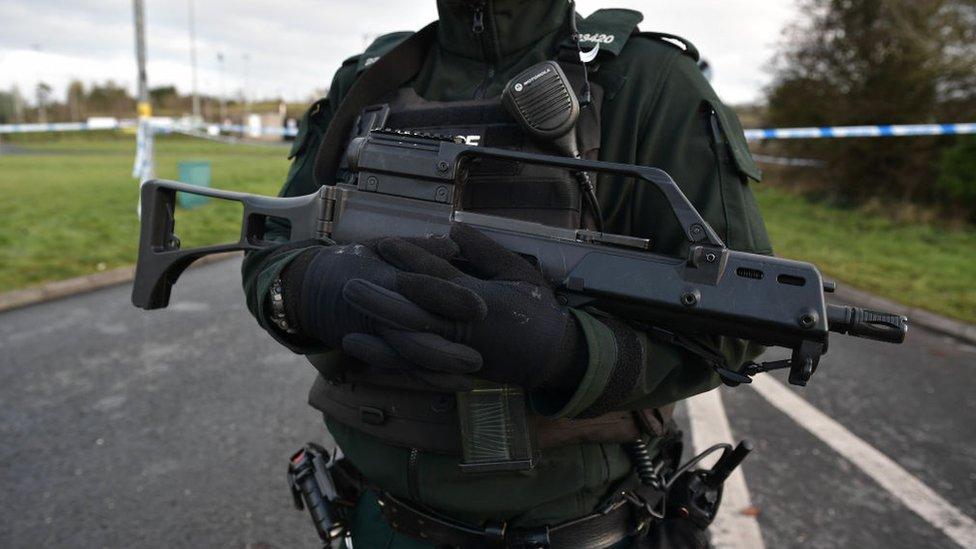
- Published27 March 2023
